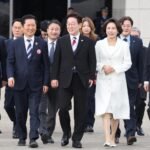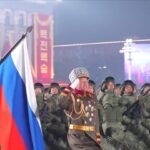Following the recent news, I am once again shocked but not surprised at the level people would go to ruin someone’s mental health to such an extent. I find it absolutely disturbing and disgusting that the first thing the “fans” thought of doing when the news of his return happened, was for them to send a thousand death wreaths… is that not insane to anyone else?? Anyways, back to the main comment, the reason why I’m saying this isn’t to defend the fans, if anything, this is a genuine mental illness that has its own problems and is a whole other topic for later. Anyways, my main complaint is the fact companies care about the fans in the wrong way, they care about feeding them a certain image of these idols to the level they market them in a way that makes them “untouchable” which in return feeds into this parasocial relationship. It’s very weird how I saw hit tweets of these so called fans saying “I don’t care about what the members think, I just want him gone”… like the fact you think you own them let alone have power over them is insane as it is. Companies might think that targeting people with parasocial relationships will help increase in sales (which is true), but I don’t think they fully grasp the fact that parasocial relationships are dangerous. Parasocial relationships could seriously end up to death and even murder, and we’ve seen than happening both in K-pop and Pop industries. Parasocial relationships in general are unhealthy and dangerous, so imagine a company that is spoon feeding these people with delusions. I don’t care what anyone says, but there will never be a change in K-pop as long as these companies are feeding fans with parasocial fantasies.
submitted by /u/nighthct
[link] [comments]















